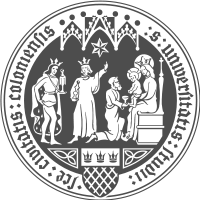 The University of Cologne has conducted an investigation into the research of Tina Wenz, and determined that six papers should be pulled due to scientific misconduct.
The University of Cologne has conducted an investigation into the research of Tina Wenz, and determined that six papers should be pulled due to scientific misconduct.
In a release issued last week (as first reported by Leonid Schneider), the university lists six papers that “present scientific misconduct,” according to our Google Translate.
One of the six papers was already retracted last year by Cell Metabolism, which cited reused northern and western blot band images in two figures.
The other six papers are:
- “Mitochondrial protein acetylation mediates nutrient sensing of mitochondrial protein synthesis and mitonuclear protein balance,” published 2014 in IUBMB Life. Not cited, according to Thomson Reuters Web of Science.
- “bezafibrate Improves mitochondrial function in the CNS of a mouse model of mitochondrial encephalopathy,” published 2013 in Mitochondrion. Cited 16 times.
- “Increased muscle PGC-1a expression protects from sarcopenia and metabolic disease during aging,” published 2009 in PNAS. Cited 323 times. Corrected in 2014, noting a blot “appeared incorrectly.”
- “Activation of the PPAR / PGC-1alpha pathway Prevents a Bioenergetic Deficit and Effectively Improves Mitochondrial Myopathy a Phenotype,” published 2008 in Cell Metabolism, cited 209 times.
- “Endurance exercise is protective for mice with mitochondrial myopathy,” published 2009 in the Journal of Applied Physiology. Cited 48 times.
Wenz is either the first or last author on all papers. Five of the six had been questioned on PubPeer. In a thread about the 2009 Journal of Applied Physiology paper, last author Carlos Moraes at the University of Miami Health System says the situation is a “nightmare:”
I cannot comment further because of the ongoing investigation and at this point I will have to wait for it to conclude to take further action.
According to the university release, the findings stem from consultations with internal and external experts.
Here’s what they concluded about the IUBMB Life paper:
The first publication is not evident whether any, and if so by whom the necessary repeat measurements were performed for the statistical analysis of the experiments. Furthermore, it was found that the data submitted to the University of Cologne do not reflect the published data. The graphics in the publication 1 is based on a single measurement and not on several measurements, as alleged in the publication.
For the remaining papers, the release notes:
The publications 2,3,4,5 and 6 are clear signs of deliberate manipulations and deceptions. This is scientific misconduct in accordance with data manipulation. §6 Nr. 1a) and b) GWP-O. It is unlikely that the image manipulation in the publications 2 and 3 are due to copying errors. The complexity of the image changes (horizontal and vertical reflections, rotations and distortions, adjusting brightness and contrast, rotation, angle changes) speak against accidental copying.
When we contacted Wenz last year about the retraction in Cell Metabolism, as well as the questions that had been raised about Wenz’s work on PubPeer, we received a response from her lawyer, Lucas Brost at Höcker Rechtsanwälte:
If you write about these speculations without any proof, we shall advise our client to initiate a lawsuit against you in Germany without further warning. We have successfully sued US entities in Germany such as Google, Twitter and Facebook. German court decisions are enforceable in the USA and vice versa due to international agreements that Germany and the US are signatories to.
Regarding the University of Cologne statement, Moraes told us:
I mostly agree with them. There is one paper (in PNAS 2009) which was the “template” to blot duplications in a later paper (mitochondrion 2013). The mitochondrion paper should be retracted, but we are still considering how to handle the PNAS paper. Regarding the other papers (Cell metabolism and JAPP), I have already contacted the Journals. I am not the senior author of the Mitochondrion paper, but I have contacted the Editor as well.
Wenz has been the recipient of the Junior Prize for neuromuscular disease from the German Society for muscular disease (DGM):
The award committee honored Tina’s research on mitochondrial dysfunction as a promising step to developing possible therapies: in fact, her work presents the first therapeutic approach for mitochondrial myopathy, which still lacks causal treatment. Tina’s research interest lies on the activation of the PPAR/PGC-1-signalling pathway in mitochondrial myopathies.
Wenz’s profile on PeerJ lists her as a group leader at the University of Cologne. We have contacted the university and Brost to determine if she is still based there.
Update 10/11/16 1:19 p.m. eastern: According to Schneider, Wenz is now based at Boehringer Ingelheim.
Like Retraction Watch? Consider making a tax-deductible contribution to support our growth. You can also follow us on Twitter, like us on Facebook, add us to your RSS reader, sign up on our homepage for an email every time there’s a new post, or subscribe to our daily digest. Click here to review our Comments Policy. For a sneak peek at what we’re working on, click here.
Given this, will Tina Wenz remain as an Academic Editor at PeerJ?
Dr. Patrick Honecker, spokesperson of the University of Cologne, states in an article about this case in the German Newspaper “Express” that Tina Weiz is not anymore affilated to the University of Cologne. Copy/pasted from http://www.express.de/24831498 (published on 30 September 2016):
“Wir mussten ausnahmsweise den Namen der Wissenschaftlerin, die nicht mehr bei uns tätig ist, öffentlich machen, damit der Verdacht der Manipulation nicht auf alle Co-Autoren zurückfällt“, begründet Uni-Sprecher Dr. Patrick Honecker die Bekanntmachung und spricht von einer „Selbstreinigungskraft“.
Science journalist Leonid Schneider states at https://forbetterscience.wordpress.com/2016/10/01/can-lawyers-influence-misconduct-investigation-case-of-tina-wenz/ (published on 1 October 2016):
“Wenz then led her lab at the University of Cologne for 3 more months with funding from the pharma giant Boehringer Ingelheim, and in October 2015 she switched completely as “Lab head, Principal Scientist” to Boehringer Ingelheim, located in Biberach in southern Germany. Her LinkedIn profile containing this information has been deleted meanwhile.”